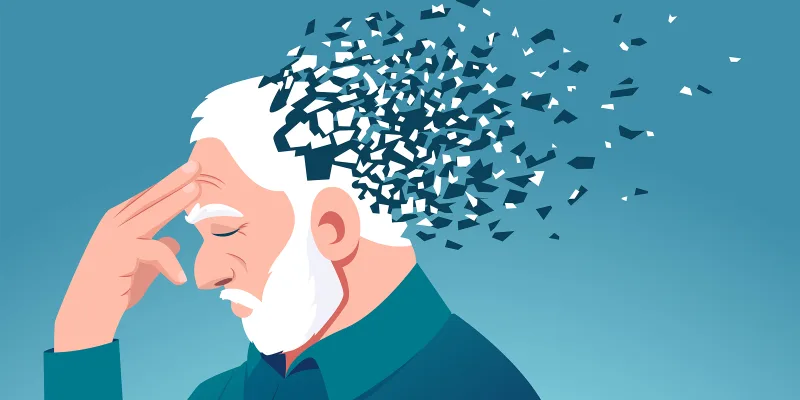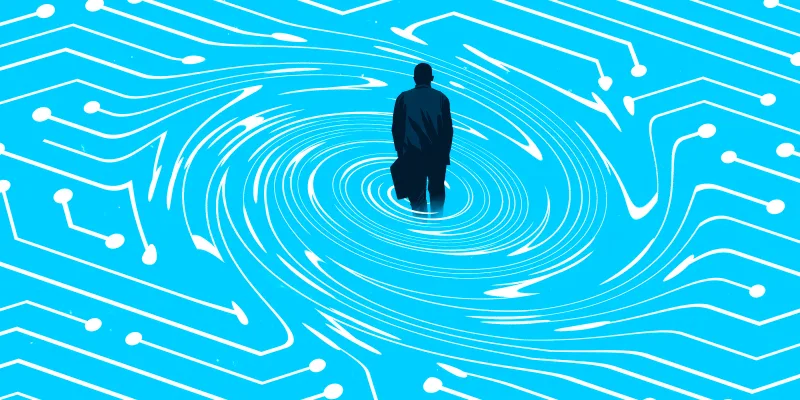During my intern year, I was on night shift in the oncology unit when I was quietly told to avoid a certain patient's room. He was a renowned leader in his field and held a senior position in the hospital. But later that night, I was paged. He wanted to see a doctor, and I went in.
He told me he'd had chest pain the night before, but no one had come when he'd rung for a doctor. He understood now it was likely esophageal spasms after morning rounds, but he still wished someone had been there. I apologized, and then he began to open up more. He spoke about the years he spent working long hours and taking on late cases, pushing his limits to be the best in his field. That drive came at a cost, including unwanted weight gain, developing diabetes, and an overall gradual decline in his health. It was a sacrifice he was willing to make to advance his career.
He eventually had to slow down and focus on his health. Even so, he continued to receive accolades and make advances in his field until he noticed a bruise that never went away. That bruise led him to the oncology unit. He was scared. And what hurt most? That no one was there when he needed help.
Doctors are human. They get sick. And when they do, they deserve the same care and compassion they give to patients throughout the many stages of their careers. Everyone tiptoed around this patient's room due to his titles and achievements, but all he really wanted, in that moment of vulnerability, was to be treated like everyone else –– like a person. He let down his guard with me during that night shift on the oncology floor. In that quiet space, he spoke openly about his fear, his anxiety, and his uncertainty about what lay ahead. I was not paged again to his bedside. He slept soundly for the rest of the night.
I thought back to medical school, where I saw glimpses of this humanity: a surgeon confessing to a panic attack before an operation, a physician crying after missing the birth of a patient's healthy baby due to a tough call schedule. During my subinternship, I cried while presenting a patient whose wife refused comfort care because she did not want to lose his VA benefits. My attending physician did not shame me in that moment, as the residents briefly stared at my tears before returning to their notes. She told me that she, too, had cried many times over her hospice patients.
These human moments can be comical as well, but still can carry guilt, especially as a trainee. One time during my subspecialty surgical rotation, I passed gas so badly that it cleared the office. The nurses and doctors joked about how bad it smelled, and I wanted to disappear. I also experienced a severe cold during my pediatric rotation, which led me to go home earlier. If a female patient came to me with embarrassing flatulence, I would recommend she fart away to avoid pelvic floor dyssynergia. I often advise patients to go home if they come to me for a cold. So, why did I feel guilty when I experienced these very human symptoms during my rotation?
Even now, I sometimes catch myself upholding those exact expectations that I know are harmful and dehumanizing to my fellow physicians. Once, I was filling in for the weekend as the upper-level resident during my first week of third-year residency, and an intern was struggling with a breakup. I told her to bury her emotions after her boyfriend of four years dumped her over text before her first day of rounds. She shuffled through her papers and struggled to hold back tears during her initial presentations.
I wish I had stepped in to help her more prior to these morning rounds. I was too focused on keeping things moving. In that movement, I contributed to the very culture that taught her that her pain did not matter and that her humanity as a clinician was something to hide. That "professionalism" we extol in medicine meant silence, further hammering home the idea that doctors do not get to be human during work hours. I regret that.
I remembered this moment as I led more teams that year, and vowed to allow doctors to show their humanity. As physicians, we need to embrace the complexity of being human to truly care for our patients. When we embrace our humanity with our tears, laughter, and frustration, we build stronger, more capable teams. My interns responded calmly during codes. They asked questions without hesitation, admitted when they didn't know something, and placed safe and effective orders. We took lunch breaks. We got coffee. We left on time. We showed up for our patients, even when we were barely holding it together ourselves, due to our supportive team that saw us as both doctors and humans, not just as doctors.
Our current system does not make room for physicians' humanity. That needs to change. We need spaces where we can be vulnerable with one another. Because when we care for ourselves and for each other, we are better doctors. We are safer, more compassionate, and more present for the people who count on us most.
How has embracing your humanity as a doctor improved your approach to patient care? Share in the comments.
Dr. Kathleen Grant is a primary care physician in Athens, Georgia. She enjoys hiking, yoga, and playing ukulele with her husband. Interests in general internal medicine include rural populations, medical education, and cancer prevention. Dr. Grant was a 2024–2025 Doximity Op-Med Fellow.
Image by Eva Almqvist / Getty







